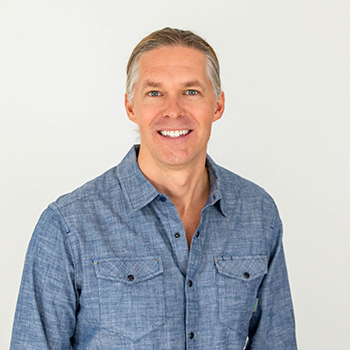Published: May 6, 2025

Looking back, when you were younger, do you wish you had some guidance when it came to making the really important decisions for your future? What college should I attend? Should I buy the reliable hatchback or the fire engine red mustang? Is this job offer right for me and my future? My guest today has created a tool that can do just that, by leveraging decision science technology to support and empower students as they make these important choices! Joining me today is Matthew Brady, tech entrepreneur, whose career has spanned both sides of the aisle from industry to education.
So the Volley app provides easy tools for tough decisions. We think first about decision templates for the common decisions a student might be making, choosing a car, choosing housing, determining whether to attend school and where, job offers and internship opportunities, even things like travel and relocation which can have different sets of data and different approaches. The app makes those decisions easier by way of providing a framework for how to approach it, the criteria, how to set the weightings that will help you make those determinations, and then how to bring other trusted people into your decision, so family, mentors, counselors, even friends can be a help in telling you the truth in a way that might be hard but might be beneficial to hear.
Interviewed this episode:

Matthew Brady
Volley Solutions
Matt Brady is an entrepreneur and educator. His latest startup is Volley, a collaborative decision optimization platform that helps organizations make important decisions using information, not intuition.
He is also writes and curates content at Human-Centered Technology to promote building ethics & empathy into innovation. The last 4 companies with which he has had an executive role have successfully reached liquidity events, including to world-class strategic buyers and private equity firms.
Matt is a passionate builder of people and organizations. He and his wife Tisha have been married since 2000 and are raising their three teenagers in Denver. Find out more about Matt Brady at MatthewJohnBrady.com.
Related Episodes
Episode Transcript
Ashley K:
Looking back when you were younger, do you wish you had some guidance when it came to making really important decisions for your future? What college should I attend? Should I buy the reliable hatchback or the fire engine? Red Mustang? Is this job right for me in my future? Well, my guest today has created a tool that can do just that by leveraging decision science technology to support and empower students as they make these important choices. Joining me today is Matthew Brady, tech entrepreneur, whose career has spanned both sides of the aisle from industry to education. Thank you so much for joining me, Matt.
Matthew Brady:
Thanks, Ashley.
Ashley K:
So Matt, when did your relationship with INFORMS begin?
Matthew Brady:
It’s been a few years now. I joined in forums after I accepted a full appointment at the LEED School of Business at CU Boulder, where I teach business technology and digital transformation.
Ashley K:
Wonderful. I would be amiss if I didn’t mention that we were recording in person in Indianapolis at the 2025 INFORMS Analytics Plus conference. Any highlights you’d like to share?
Matthew Brady:
I do. I have a special celebration to this my 25th wedding anniversary. Congratulations. Thank you so much. My wife, Tisha is here with me today. Thank God for her. She’s been such a joy and such a support to me. We’ve been able to celebrate together. We have family here. We actually met in Indiana at Purdue University, and so after we graduated the next year, we return for homecoming and I proposed to her in the classroom that we met in.
Ashley K:
Oh my gosh, that’s a great story. Thank you. I’m so glad it all lined up perfectly. It’s
Matthew Brady:
Been great. Yeah, it’s been a fun day and it’s not over yet.
Ashley K:
So speaking of the conference, what number is this for you?
Matthew Brady:
I think I’ve tallied with INFORMS forms, events seven as of today.
Matthew Brady:
So I have done some virtually and I’ve been an attendee at some. I’ve been in person and been a speaker at some events, and we’ve even at the most recent event in Denver sponsored that business analytics conference. Wonderful. So tried to be involved in every way possible.
Ashley K:
Wonderful. Alright, let’s dive into Volley Solutions. This new tool for students that I discussed earlier. Can you tell us a little more about what it does?
Matthew Brady:
Sure, sure. So the Volley app provides easy tools for tough decisions. We think first about decision templates for the common decisions that a student might be making. And so choosing a car, choosing housing, determining whether to attend school and where job offers and internship opportunities, even things like travel and relocation, which can have different sets of data and different approaches. The app makes those decisions easier by way of providing a framework for how to approach it,
The criteria, how to set the weightings, it will help you make those determinations. And then how to bring other trusted people into a decision. So family, mentors, counselors, even friends, can be a help in telling you the truth in a way that might be hard but might be beneficial to hear. So that’s our goal. And then the app also has what we think is one of the largest libraries ever compiled of biases and heuristics and fallacies to help people avoid those blind spots. Many of us have learned in school what some cost fallacy is. It’s pretty easy to envision what the Ostrich effect is, but how to apply recency bias and confirmation bias and how to avoid or leverage those tools and techniques in a way that are only positive and not negative. So that’s really the purpose of the tool overall, and it’s growing quickly.
Ashley K:
That’s terrific. What inspired you to create it?
Matthew Brady:
Well, I will first say we have three kids in college, and so it’s a significant stakeholder group for us, but I also saw the opportunity to bring these tools. My quest and something that just has been on my heart since I got involved within informs and as a founder of this most recent company, volley Solutions, is to bring decision science to the masses. So with the Volley app and with the Volley web-based platform, we’re enabling everyday use cases for decision science in a way that we hope will help people change lives, impact organizations, and create a bunch of other positive outputs as well.
Ashley K:
That’s terrific. So obviously that sort of age range, there’s a lot of decisions that people are making. How did you decide which ones to include in the app?
Matthew Brady:
Well, we run a series of workshops called Decide Better. We developed these based on the formal curriculum that comes out of academia, but also off of the practical applications that we saw students and frankly individuals and even teams and organizations commonly go through. So in running dozens of these workshops, we were able to identify the most common topics to cover.
Those are now enabled within the application. And what we’ll do is continue to take feedback from our audience, which is why we’ve made the Volley app free for personal and academic use, is that we want people to tell us what are the things they need help with, and they struggle to feel confident both in the decision, but also in the follow-up. Decisions can take hours, days, consequences, or the outcomes of these decisions can last years and decades. And so we want to hear from users as to how we can help them be more effective, both in the decision-making process, which we think matters the most, but also of course in having good outcomes.
Ashley K:
Yeah. So what is your ultimate goal with this app? And is this similar to other projects you’re working on or have worked on?
Matthew Brady:
Yes. Well, it’s all in keeping with our long-term vision that we do want to empower individuals, teams, and organizations to use decision science to make an impact. And with that, the app is free, the Volley platform is paid. We have seen the app grow from students referring more students and bringing family members in, and family members involve other family members. So it’s grown really nicely, thinking longer term. What we want to do is add more tools like job changes, maybe setting a household budget, thinking about future planning whereby they have other things that they need to be contemplating. So that’s our plan to really enable the application to be able to do more.
Matthew Brady:
That said, students and young professionals are very comfortable with ai, which is great because the application is very significantly powered by ai, all aspects of it. And so we foresee an era where those tools become even more relevant and readily available to users, and those will be announced in a future release.
Ashley K:
It’s exciting. Matt, is there anything else you’d like to share today about the app or anything else?
Matthew Brady:
Well, I think INFORMS is doing a great job of bringing more awareness to these topics and equipping people. That’s our goal as well with the mobile application. We want to see decision science at the fingertips, or let’s say the one voice command away as we develop that, a decision coach that we think can help people. So that’s really the plan. Long-term Volley works with for-profit companies and nonprofit companies of all sizes from small to some of the largest world. And what we foresee is these tools becoming more pervasive and powered by technology, but ultimately impacting people’s lives.
Ashley K:
Wonderful. Matt, thank you so much for joining me. It’s been such a pleasure speaking with you, and I hope you have a wonderful time on your anniversary and with the rest of the conference.
Matthew Brady:
Thanks, Ashley. Appreciate it.
Want to learn more? Check out the additional resources and links listed below for more information about what was discussed in the episode.
Tags: decision making, mobile app, student

